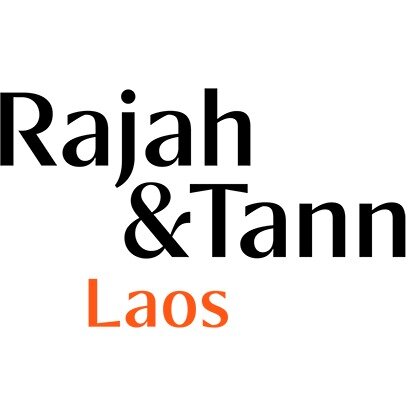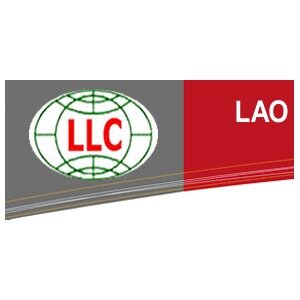Best Oil, Gas & Energy Lawyers in Laos
Share your needs with us, get contacted by law firms.
Free. Takes 2 min.
Or refine your search by selecting a city:
List of the best lawyers in Laos
About Oil, Gas & Energy Law in Laos
Laos has been exploring its oil and gas potential in recent years, with a focus on developing its energy sector. The country also has significant hydropower resources, making energy a critical aspect of its economy. The legal framework surrounding oil, gas, and energy in Laos is evolving to attract investment and ensure sustainable development in the sector.
Why You May Need a Lawyer
Legal issues can arise in various situations related to oil, gas, and energy in Laos. Some common reasons why you may need a lawyer include negotiating contracts, resolving disputes with stakeholders, navigating regulatory requirements, ensuring compliance with environmental laws, and protecting your interests in joint ventures or partnerships.
Local Laws Overview
In Laos, the legal framework related to oil, gas, and energy is primarily governed by the Law on Energy, the Law on Mining, and the Law on Environmental Protection. These laws aim to promote investment in the sector, protect the environment, and ensure sustainable development. The government also regulates the sector through licensing, permits, and monitoring activities.
Frequently Asked Questions
1. What are the key regulations governing oil, gas, and energy in Laos?
The primary regulations governing the sector in Laos include the Law on Energy, the Law on Mining, and the Law on Environmental Protection. These laws set out the legal framework for exploration, production, and distribution of oil, gas, and energy resources.
2. How can I obtain a license to operate in the oil, gas, or energy sector in Laos?
To operate in the sector, you will need to apply for a license from the relevant government authority. The licensing process typically involves submitting an application, meeting certain criteria, and paying applicable fees.
3. What environmental regulations do I need to comply with in Laos?
Laos has strict environmental regulations to protect its natural resources. As a company operating in the sector, you will need to comply with laws related to environmental impact assessments, waste management, and pollution control.
4. How can a lawyer help me navigate disputes in the oil, gas, or energy sector?
A lawyer can assist you in resolving disputes with stakeholders, negotiating settlements, and representing your interests in court if necessary. They can also provide legal advice on how to prevent disputes and protect your rights.
5. Are there any incentives for investing in the oil, gas, or energy sector in Laos?
Laos offers various incentives to attract investment in the sector, such as tax breaks, customs exemptions, and preferential treatment for domestic companies. A lawyer can help you navigate these incentives and maximize your investment opportunities.
6. What are the requirements for setting up a joint venture in the oil, gas, or energy sector in Laos?
Setting up a joint venture in Laos involves drafting a joint venture agreement, obtaining necessary permits, and complying with corporate laws. A lawyer can guide you through the process and ensure that your interests are protected.
7. How can I ensure compliance with local laws when operating in the oil, gas, or energy sector in Laos?
Compliance with local laws is essential for operating in the sector. A lawyer can help you understand the legal requirements, develop compliance programs, and ensure that your operations are in line with the law.
8. What role does the government play in regulating the oil, gas, and energy sector in Laos?
The government plays a significant role in regulating the sector through licensing, permits, inspections, and monitoring activities. It also sets policies to promote investment, ensure environmental protection, and drive sustainable development in the sector.
9. What legal risks should I be aware of when operating in the oil, gas, or energy sector in Laos?
Legal risks in the sector include contract disputes, regulatory non-compliance, environmental liability, intellectual property issues, and government investigations. A lawyer can help you identify and mitigate these risks to protect your business interests.
10. How can I find a reputable lawyer specializing in oil, gas, and energy law in Laos?
You can start by researching law firms that specialize in the sector, asking for referrals from industry contacts, and checking online directories. It's essential to choose a lawyer with experience in oil, gas, and energy law and a track record of successful outcomes.
Additional Resources
For more information on oil, gas, and energy in Laos, you can visit the Ministry of Energy and Mines or the Department of Mines. These governmental bodies provide valuable resources, guidance, and updates on the sector.
Next Steps
If you require legal assistance in the oil, gas, or energy sector in Laos, it's advisable to consult with a qualified lawyer specializing in the field. A lawyer can help you understand your rights, navigate complex legal issues, and protect your interests in the sector.
Lawzana helps you find the best lawyers and law firms in Laos through a curated and pre-screened list of qualified legal professionals. Our platform offers rankings and detailed profiles of attorneys and law firms, allowing you to compare based on practice areas, including Oil, Gas & Energy, experience, and client feedback.
Each profile includes a description of the firm's areas of practice, client reviews, team members and partners, year of establishment, spoken languages, office locations, contact information, social media presence, and any published articles or resources. Most firms on our platform speak English and are experienced in both local and international legal matters.
Get a quote from top-rated law firms in Laos — quickly, securely, and without unnecessary hassle.
Disclaimer:
The information provided on this page is for general informational purposes only and does not constitute legal advice. While we strive to ensure the accuracy and relevance of the content, legal information may change over time, and interpretations of the law can vary. You should always consult with a qualified legal professional for advice specific to your situation.
We disclaim all liability for actions taken or not taken based on the content of this page. If you believe any information is incorrect or outdated, please contact us, and we will review and update it where appropriate.
Browse oil, gas & energy law firms by city in Laos
Refine your search by selecting a city.












